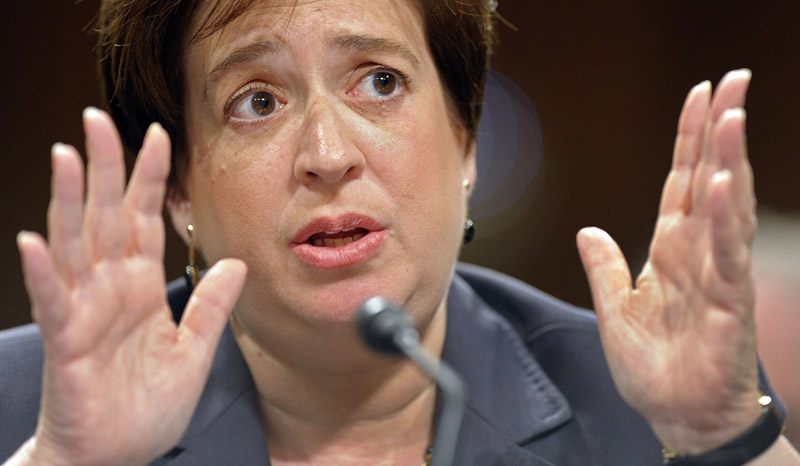Supreme Court nominee Elena Kagan did her best to avoid taking a position on controversial issues during her confirmation hearings last week, but she didn’t sidestep one question. Should there be cameras in the Supreme Court? Absolutely, said Kagan.
“I think it would be a terrific thing to have cameras in the courtroom,” she said. “When you see what happens there, it’s really an inspiring sight.”
What she is talking about is the rapid-fire questioning that the justices unleash on the lawyers before them. Kagan would know. As solicitor general for the last two years, she has been on the receiving end of the barrage.
Kagan is right about another thing. It would be an inspiring sight for many people to see the Supreme Court in action. Witnessing a branch of government functioning at a high level would raise public awareness about the historic impact of the issues before them. And sometimes, as Kagan said, the arguments would be likely to put many people to sleep. But that too has value, if only by showing that the court is a serious place, not an entertainment vehicle always looking for the next big splash.
Bringing cameras into the Supreme Court’s arguments would raise public awareness of how the courts work, which would be positive. The same would be true for allowing cameras in the lower federal courts, in which no-less important issues are decided, and cameras are never allowed.
State courts have decades of experience with cameras and there are many models the federal courts could adopt. Maine has recently relaxed its camera policy, allowing them into parts of trials that had previously been closed.
Court proceedings are held in public for a reason: Our founders wanted the people, and not just the parties to a case, to witness what took place when their neighbors looked for justice. Without broad public confidence that the process is fair, it cannot work.
Our definition of what it means for an event to be public has evolved and, for better or worse, participants in the judicial branch of government should be ready to conduct their business in public view, which now means in front of a camera.
Send questions/comments to the editors.


